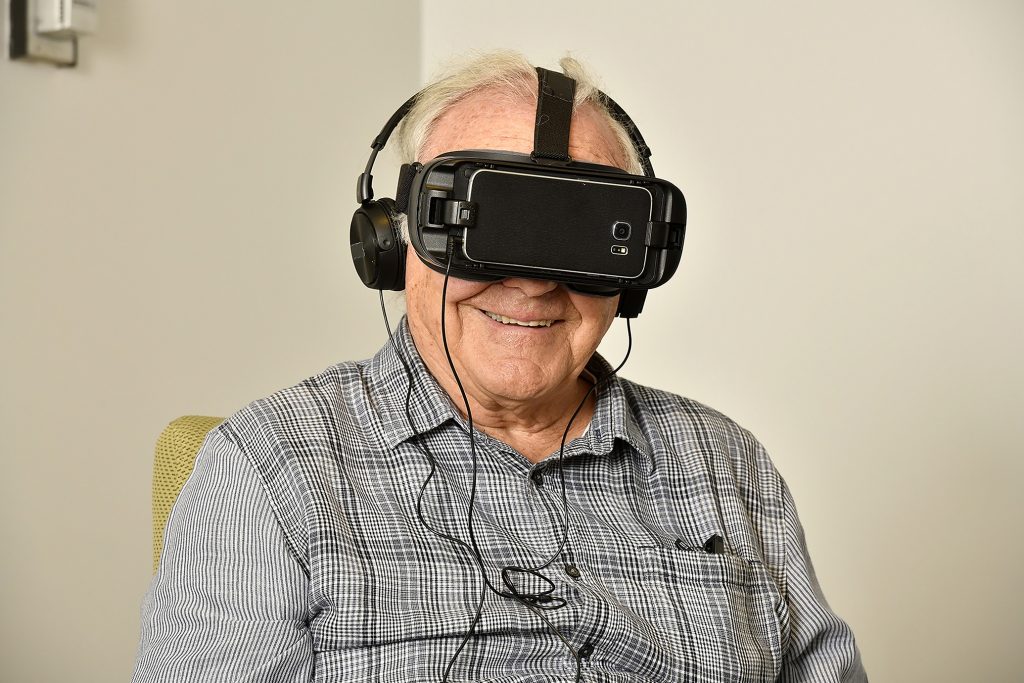Using Virtual Reality to Reduce Responsive Behaviours in People Living With Dementia

Award Date: 2018
Project Lead(s): Lacey Sheng, Performance Improvement Consultant
Project Title: VR2 - Applying Virtual Reality Therapy in Long-Term Care for Residents with Dementia to Reduce Responsive Behaviours and Caregiver Burnout
What is the issue?
People with dementia may strike out physically or raise their voices at inappropriate times. These responsive behaviours may result from an inability to communicate their needs and may be triggered by care activities such as bathing. Virtual reality technology has helped improve the quality of life of long-term care residents without dementia.
What did we do?
We provided relaxing virtual reality therapy to residents with dementia to see if virtual scenes of nature would help reduce responsive behaviours. Recreation professionals closely supervised residents when they used the headset viewers. We also assessed caregivers to see if the intervention helped reduced their feelings of burnout.
What did we find?
This project was the first to explore the use of virtual reality in people with cognitive impairment. Many residents benefited from viewing the relaxing scenes. It was helpful to involve families and friends to choose scenes that were meaningful to residents. We learned that virtual reality requires careful supervision and testing in small steps when used by people with dementia.

